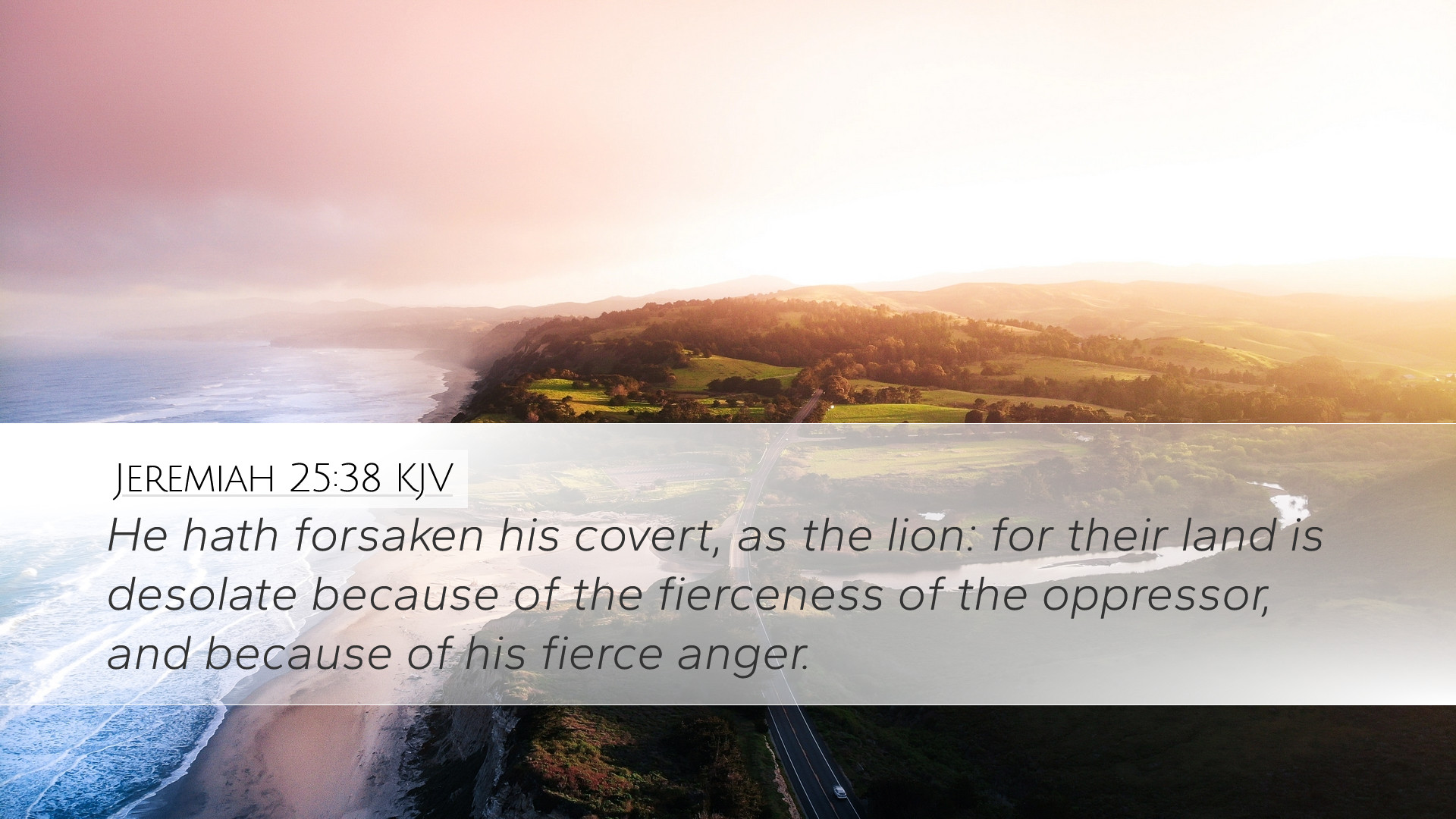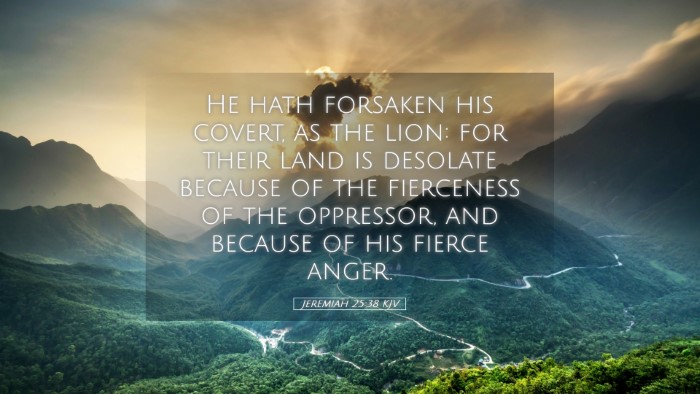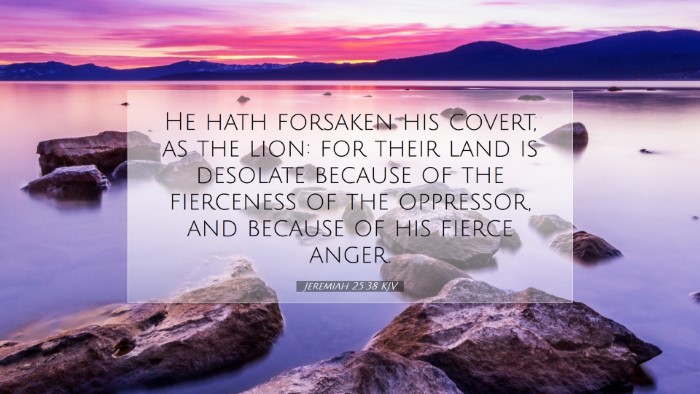Commentary on Jeremiah 25:38
The verse Jeremiah 25:38 states, "He hath left his covert, as the lion: for their land is desolate because of the fierceness of the oppressor, and because of the wrath of the LORD." In this text, we find a powerful metaphor illustrated through the imagery of a lion leaving its den, which signifies the impending judgment and desolation brought upon the land due to divine wrath.
Contextual Background
To fully grasp the weight of Jeremiah 25:38, we must consider the historical context of the prophet Jeremiah's ministry. Prophesying during a turbulent period for the people of Judah, Jeremiah warns them of the coming destruction of Jerusalem and the temple, largely as a consequence of their idolatry and moral failures. This scripture reflects the culmination of God's judgment as He withdraws His protection, allowing external forces to ravage the land.
Commentary Insights
Matthew Henry's Commentary
Matthew Henry emphasizes the gravity of divine judgment in this passage. He interprets "his covert" (or den) as a metaphor for God's protective presence withdrawn from His people due to their persistent sin. When God forsakes His covert, He allows calamity to befall nations that demonstrate persistent rebellion. Henry further draws attention to the fierceness of the oppressor, which evokes a sense of unavoidable terror that results from the righteous wrath of God.
Albert Barnes' Notes
Albert Barnes elaborates on the symbolism of the lion, which represents strength and ferocity. He notes that in biblical literature, lions often symbolize God’s might, particularly in judgment. By leaving His covert, God, akin to a lion, exhibits His sovereignty in dispensing justice. Barnes warns that this desolation is a consequence of turning from God—a theme prevalent throughout the prophetic literature. Furthermore, Barnes speaks to the dire conditions following Jerusalem's fall, indicating that the desolation would become a marker of divine displeasure among the nations.
Adam Clarke's Commentary
Adam Clarke connects the imagery of the lion with the historical realities faced during the Babylonian invasion. He suggests that the lion references Nebuchadnezzar, who is depicted as God’s instrument of judgment against Judah. When the lion leaves its den, it not only terrifies but also acts with ferocity upon those who oppose it. Clarke stresses that the desolate state of the land is due to both human cruelty and divine indignation, indicating a dual theme of human agency and divine sovereignty.
Theological Implications
The themes contained within Jeremiah 25:38 point toward broader theological reflections regarding God’s nature and His relationship with humanity. When the divine covenant is broken through immorality, God’s withdrawal is a profound act of judgment that leads to desolation. This highlights the necessity of repentance and contrition as a means to restore favor with God. Various commentaries underscore God's unwavering justice in the face of human transgression, reiterating that His judgments, though severe, stem from divine love that desires restoration over destruction.
Practical Application
For pastors and theologians, this verse serves as a critical reminder of the consequences of departed faithfulness and the need for vigilant adherence to God’s commands. It acts as both a warning and a call to action; churches must actively cultivate a relationship with God that is grounded in holiness and obedience. The prophetic call for repentance remains relevant today, urging believers to recognize the seriousness of sin and the importance of returning to God’s embrace.
Conclusion
In summary, Jeremiah 25:38 encapsulates the profound seriousness of divine judgment and the consequences of sin. The combined insights from public domain commentaries affirm the necessity of understanding God’s will and the implications of His withdrawal from those who forsake Him. This passage not only conveys a message of warning but also serves as an invitation to restoration. As we reflect on the desolation described, may we strive to remain in the protective covert of God’s grace, fully aware of the nature of His justice and mercy.


